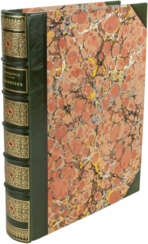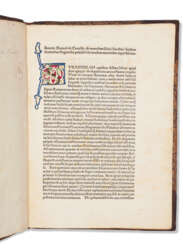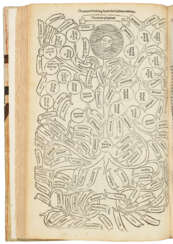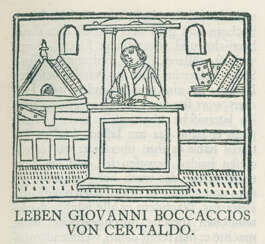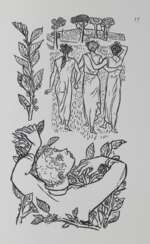джованни боккаччо (1313 - 1375)
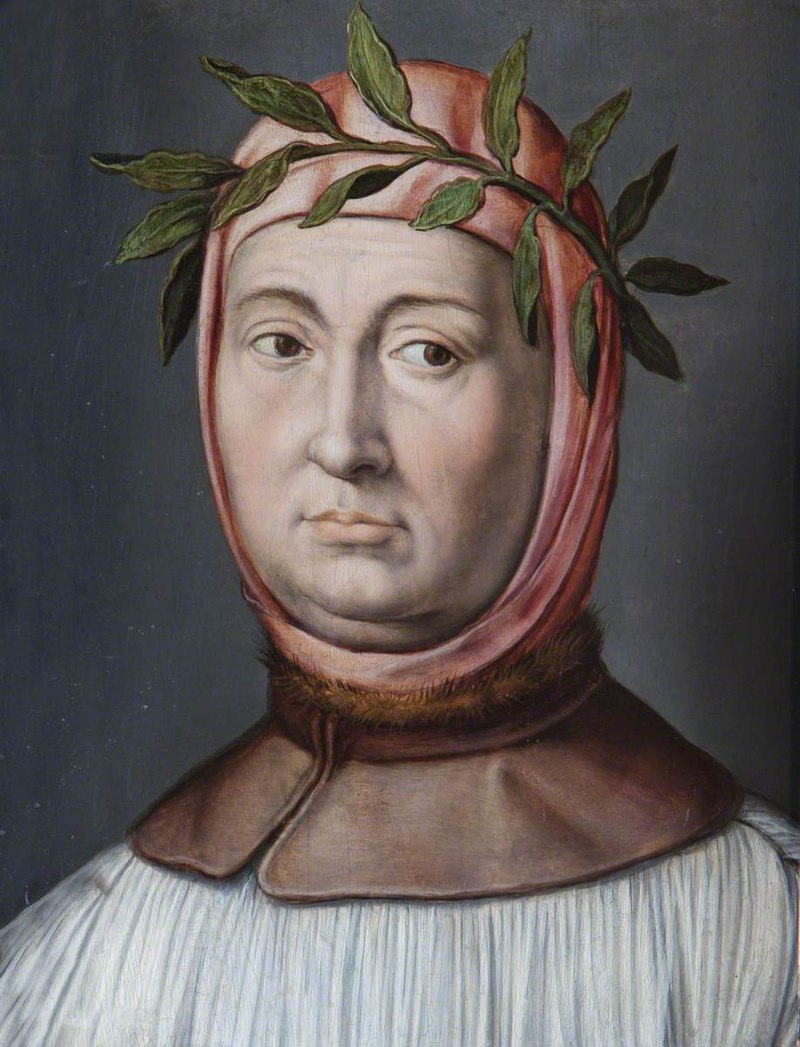
Giovanni Boccaccio was an Italian humanist scholar, writer and poet of the Early Renaissance.
Boccaccio was the son of a Tuscan merchant who sent him to Naples to study business and law. Giovanni revolved in aristocratic circles there and became acquainted with Petrarch's work. In Naples he wrote his first works of poetry, raising the poetry of Italian minstrelsy to literature. Returning to Florence in 1341, Boccaccio, in addition to the famous book of witty short stories "Decameron" (1348-1353), created many poems, allegories and prose works.
In 1350 at Bocaccio's house in Florence, he met Petrarch, which developed into a friendship. In the last years of his life he concentrated on scholarly works in Latin, including writing De montibus, silvis, fontibus, lacubus..., - this alphabetical list of mountains, forests, rivers and lakes was based on the writings of ancient poets. His other Latin works include the philosophical and historical De claris mulieribus (a collection of biographies of famous women, 1360-74) and De casibus virorum illustrium (On the Fates of Famous Men, 1355-74).
Giovanni Boccaccio had a significant influence on the development of all European culture through his work. Together with Petrarch, he laid the foundations of Renaissance humanism and raised popular literature to the level and status of the ancient classics.

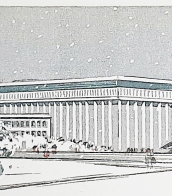


Giovanni Boccaccio was an Italian humanist scholar, writer and poet of the Early Renaissance.
Boccaccio was the son of a Tuscan merchant who sent him to Naples to study business and law. Giovanni revolved in aristocratic circles there and became acquainted with Petrarch's work. In Naples he wrote his first works of poetry, raising the poetry of Italian minstrelsy to literature. Returning to Florence in 1341, Boccaccio, in addition to the famous book of witty short stories "Decameron" (1348-1353), created many poems, allegories and prose works.
In 1350 at Bocaccio's house in Florence, he met Petrarch, which developed into a friendship. In the last years of his life he concentrated on scholarly works in Latin, including writing De montibus, silvis, fontibus, lacubus..., - this alphabetical list of mountains, forests, rivers and lakes was based on the writings of ancient poets. His other Latin works include the philosophical and historical De claris mulieribus (a collection of biographies of famous women, 1360-74) and De casibus virorum illustrium (On the Fates of Famous Men, 1355-74).
Giovanni Boccaccio had a significant influence on the development of all European culture through his work. Together with Petrarch, he laid the foundations of Renaissance humanism and raised popular literature to the level and status of the ancient classics.


Giovanni Boccaccio was an Italian humanist scholar, writer and poet of the Early Renaissance.
Boccaccio was the son of a Tuscan merchant who sent him to Naples to study business and law. Giovanni revolved in aristocratic circles there and became acquainted with Petrarch's work. In Naples he wrote his first works of poetry, raising the poetry of Italian minstrelsy to literature. Returning to Florence in 1341, Boccaccio, in addition to the famous book of witty short stories "Decameron" (1348-1353), created many poems, allegories and prose works.
In 1350 at Bocaccio's house in Florence, he met Petrarch, which developed into a friendship. In the last years of his life he concentrated on scholarly works in Latin, including writing De montibus, silvis, fontibus, lacubus..., - this alphabetical list of mountains, forests, rivers and lakes was based on the writings of ancient poets. His other Latin works include the philosophical and historical De claris mulieribus (a collection of biographies of famous women, 1360-74) and De casibus virorum illustrium (On the Fates of Famous Men, 1355-74).
Giovanni Boccaccio had a significant influence on the development of all European culture through his work. Together with Petrarch, he laid the foundations of Renaissance humanism and raised popular literature to the level and status of the ancient classics.


Giovanni Boccaccio was an Italian humanist scholar, writer and poet of the Early Renaissance.
Boccaccio was the son of a Tuscan merchant who sent him to Naples to study business and law. Giovanni revolved in aristocratic circles there and became acquainted with Petrarch's work. In Naples he wrote his first works of poetry, raising the poetry of Italian minstrelsy to literature. Returning to Florence in 1341, Boccaccio, in addition to the famous book of witty short stories "Decameron" (1348-1353), created many poems, allegories and prose works.
In 1350 at Bocaccio's house in Florence, he met Petrarch, which developed into a friendship. In the last years of his life he concentrated on scholarly works in Latin, including writing De montibus, silvis, fontibus, lacubus..., - this alphabetical list of mountains, forests, rivers and lakes was based on the writings of ancient poets. His other Latin works include the philosophical and historical De claris mulieribus (a collection of biographies of famous women, 1360-74) and De casibus virorum illustrium (On the Fates of Famous Men, 1355-74).
Giovanni Boccaccio had a significant influence on the development of all European culture through his work. Together with Petrarch, he laid the foundations of Renaissance humanism and raised popular literature to the level and status of the ancient classics.
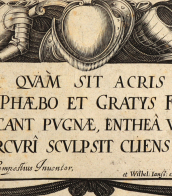

Giovanni Boccaccio was an Italian humanist scholar, writer and poet of the Early Renaissance.
Boccaccio was the son of a Tuscan merchant who sent him to Naples to study business and law. Giovanni revolved in aristocratic circles there and became acquainted with Petrarch's work. In Naples he wrote his first works of poetry, raising the poetry of Italian minstrelsy to literature. Returning to Florence in 1341, Boccaccio, in addition to the famous book of witty short stories "Decameron" (1348-1353), created many poems, allegories and prose works.
In 1350 at Bocaccio's house in Florence, he met Petrarch, which developed into a friendship. In the last years of his life he concentrated on scholarly works in Latin, including writing De montibus, silvis, fontibus, lacubus..., - this alphabetical list of mountains, forests, rivers and lakes was based on the writings of ancient poets. His other Latin works include the philosophical and historical De claris mulieribus (a collection of biographies of famous women, 1360-74) and De casibus virorum illustrium (On the Fates of Famous Men, 1355-74).
Giovanni Boccaccio had a significant influence on the development of all European culture through his work. Together with Petrarch, he laid the foundations of Renaissance humanism and raised popular literature to the level and status of the ancient classics.
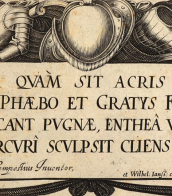

Giovanni Boccaccio was an Italian humanist scholar, writer and poet of the Early Renaissance.
Boccaccio was the son of a Tuscan merchant who sent him to Naples to study business and law. Giovanni revolved in aristocratic circles there and became acquainted with Petrarch's work. In Naples he wrote his first works of poetry, raising the poetry of Italian minstrelsy to literature. Returning to Florence in 1341, Boccaccio, in addition to the famous book of witty short stories "Decameron" (1348-1353), created many poems, allegories and prose works.
In 1350 at Bocaccio's house in Florence, he met Petrarch, which developed into a friendship. In the last years of his life he concentrated on scholarly works in Latin, including writing De montibus, silvis, fontibus, lacubus..., - this alphabetical list of mountains, forests, rivers and lakes was based on the writings of ancient poets. His other Latin works include the philosophical and historical De claris mulieribus (a collection of biographies of famous women, 1360-74) and De casibus virorum illustrium (On the Fates of Famous Men, 1355-74).
Giovanni Boccaccio had a significant influence on the development of all European culture through his work. Together with Petrarch, he laid the foundations of Renaissance humanism and raised popular literature to the level and status of the ancient classics.

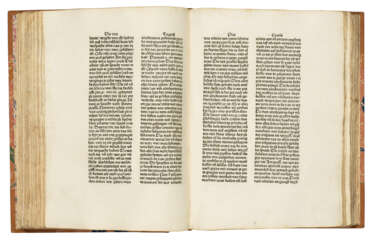

![Боккаччо, Д. Декамерон: [в 2 т.] / Джованни Боккаччо; Пер. Александра Веселовского; С вступ. статьей В.Ф. Шишмарева и пред. А.К. Дживелегова.](/assets/image/picture_1591937/bc87d/plj032klyoedl9th0xvjqdupzlsf-ok3d8z4u8nx48nzr9wfypejp3xoxi5a-e1625838574jpg__fix_374_244.jpeg)
![Боккаччо, Д. Декамерон: [в 2 т.] / Джованни Боккаччо; Пер. Александра Веселовского; С вступ. статьей В.Ф. Шишмарева и пред. А.К. Дживелегова.](https://veryimportantlot.com/assets/image/picture_1591937/bc87d/plj032klyoedl9th0xvjqdupzlsf-ok3d8z4u8nx48nzr9wfypejp3xoxi5a-e1625838574jpg__fix_374_244.jpeg)
